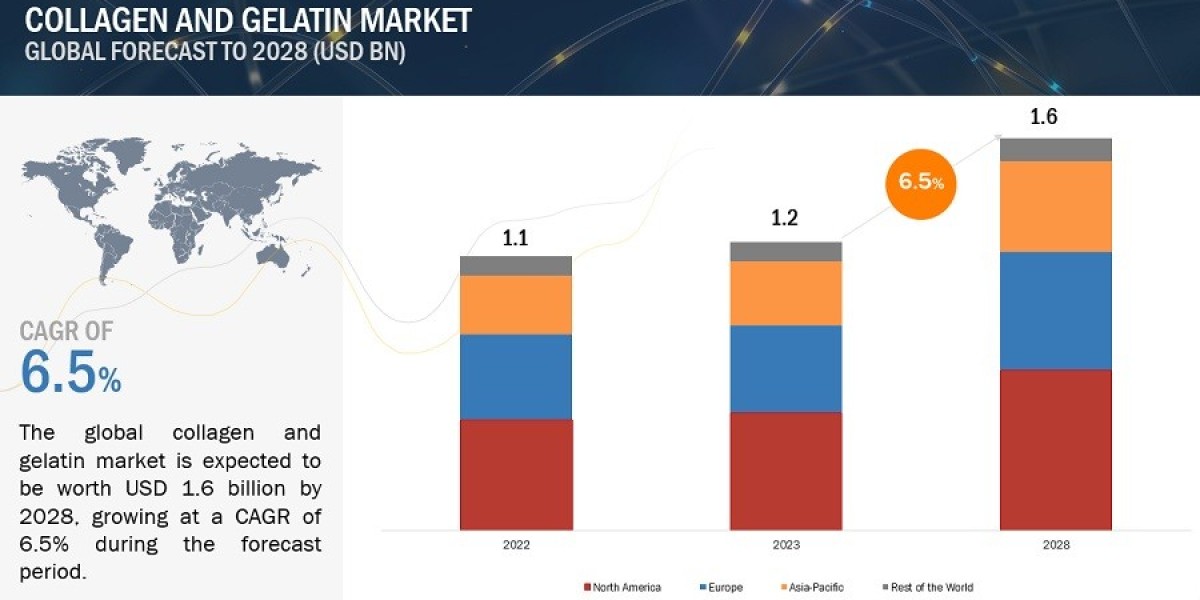The global coffee market is characterized by its dynamic growth and increasing demand, influenced by changing consumer preferences towards specialty and premium coffee varieties. Major producers include Brazil, Vietnam, Colombia, and Ethiopia, with the market being highly competitive and fragmented among numerous players, from local producers to multinational corporations. Factors such as climate change, fluctuating commodity prices, and supply chain disruptions pose challenges, while trends like sustainability and ethical sourcing are shaping the industry's future. Consumption patterns are evolving, with a notable rise in home brewing and online sales, especially during the COVID-19 pandemic.
Coffee Market Size and Growth
In 2023, the global coffee market size was valued at around USD 134.85 billion, showcasing the significant economic footprint of coffee worldwide. This value reflects the comprehensive market encompassing everything from coffee cultivation and processing to distribution and retail. The coffee industry has become a cornerstone of the global economy, driven by increasing consumption, a growing preference for specialty coffees, and the expansion of coffee culture across different regions.
Looking ahead, the market is projected to continue its upward trajectory, with an expected Compound Annual Growth Rate (CAGR) of 6.4% from 2024 to 2032. This growth will likely elevate the market's value to approximately USD 236.98 billion by 2032. Such expansion is anticipated due to factors like rising disposable incomes, changing lifestyles, and the increasing adoption of coffee in emerging markets. Additionally, innovation in coffee products and the growing emphasis on sustainable and ethical sourcing are set to further propel market growth, catering to the evolving demands of a diverse global consumer base.
Coffee Market Trends
The coffee market is witnessing several key trends that are shaping its current landscape and future direction:
Request Sample: https://www.expertmarketresearch.com/reports/coffee-market/requestsample
1. Specialty and Premium Coffee: There's a growing consumer preference for specialty and artisanal coffees, with emphasis on unique blends, single-origin, and high-quality beans. This trend reflects a broader shift towards premiumization, where consumers are willing to pay more for products that offer superior taste, quality, and ethical sourcing practices.
2. Sustainability and Ethical Practices: Sustainability concerns are increasingly influencing consumer choices. Trends towards ethically sourced and environmentally friendly coffee are gaining momentum, with a focus on fair trade practices, organic certification, and reducing the carbon footprint of coffee production and distribution.
3. Technological Innovation: Technology is playing a significant role in transforming the coffee industry, from blockchain for traceability and transparency in the supply chain to advanced brewing technologies enhancing the consumer experience at home and in cafes.
4. Health and Wellness: The health and wellness trend is impacting coffee consumption habits, with a rise in demand for coffee products that offer health benefits, such as added vitamins, minerals, and alternative healthy ingredients like mushrooms.
5. Convenience and Ready-to-Drink (RTD): The fast-paced lifestyle of consumers is driving the popularity of convenient coffee formats, including RTD coffee beverages, coffee pods, and instant coffee mixes, catering to the need for quick and easy coffee solutions.
6. Home Brewing: The COVID-19 pandemic accelerated the trend of home brewing, as lockdowns and work-from-home policies led consumers to replicate the café experience at home. This has led to a surge in sales of coffee machines, gourmet coffee varieties, and brewing accessories.
7. E-Commerce Growth: Online sales channels for coffee have seen significant growth, facilitated by the broader trend of digitalization and e-commerce. Consumers are increasingly purchasing coffee and coffee-related products online, driven by convenience and the availability of a wide range of options.
Market Opportunities and Challenges
The coffee market presents a mix of opportunities and challenges that stakeholders must navigate to harness growth and sustain profitability. Here’s an overview:
Opportunities:
1. Expanding Consumer Base: The global rise in coffee consumption, particularly in emerging markets, offers significant opportunities for market expansion. As coffee culture spreads, new segments of consumers are emerging, ready to explore different coffee products.
2. Premiumization and Specialty Coffees: There's a growing demand for premium and specialty coffees among consumers seeking high-quality, unique, and artisanal coffee experiences. This trend opens avenues for higher profit margins and brand differentiation.
3. Innovation in Product and Packaging: Innovations in coffee flavors, brewing techniques, and sustainable packaging can meet the evolving preferences of consumers, especially those interested in convenience, sustainability, and health.
4. E-commerce and Direct-to-Consumer Sales: The rise of online shopping and subscription models presents opportunities for brands to reach consumers directly, offering personalized experiences and building brand loyalty.
5. Sustainability Initiatives: Engaging in sustainable practices and ethical sourcing can not only reduce environmental impact but also cater to the increasing consumer demand for responsible brands, creating a competitive edge.
Challenges:
1. Supply Chain Volatility: Coffee production is highly susceptible to climate change, with unpredictable weather patterns posing risks to crop yields. Additionally, fluctuations in commodity prices can impact profitability and stability in the supply chain.
2. Increasing Competition: The coffee market is becoming increasingly crowded, with numerous players from multinational corporations to local cafes vying for consumer attention. Differentiating in such a competitive landscape requires constant innovation and strategic marketing.
3. Regulatory and Trade Issues: Coffee trade is subject to international regulations, tariffs, and trade agreements that can affect market access and cost structures, posing challenges to exporters and importers alike.
4. Sustainability and Ethical Sourcing Pressures: While sustainability offers opportunities, it also presents challenges. Meeting the high standards of ethical sourcing and environmental stewardship requires significant investment and oversight, which can be particularly challenging for small-scale producers.
5. Consumer Shifts Post-Pandemic: The COVID-19 pandemic has altered consumer behavior, with shifts towards home consumption and online shopping. Adapting to these changes in consumer habits and preferences requires agility and responsiveness from coffee businesses.
Market Dynamics
The coffee market dynamics encompass a range of factors that influence its operation and growth. Here's a breakdown of key dynamics in individual points:
1. Global Demand Growth: The increasing global consumption of coffee, driven by rising disposable incomes and the expansion of coffee culture worldwide, especially in emerging markets.
2. Climate Change Impact: Climate change poses a significant challenge to coffee production, affecting crop yields and quality, and increasing the vulnerability of coffee-growing regions to pests and diseases.
3. Supply Chain Volatility: Fluctuations in coffee prices and availability due to geopolitical tensions, trade policies, and supply chain disruptions can impact the overall market stability.
4. Innovation in Coffee Products: The introduction of new coffee products, including specialty coffees, ready-to-drink (RTD) formats, and coffee-infused beverages, caters to evolving consumer preferences.
5. Sustainability and Ethical Sourcing: The growing consumer demand for sustainably sourced and ethically produced coffee influences market practices, encouraging more transparent and responsible sourcing methods.
6. Technological Advancements: Advances in technology, from precision agriculture for coffee farming to innovative brewing equipment, enhance efficiency and consumer experiences.
7. Health and Wellness Trends: The integration of health-conscious products within the coffee industry, such as organic, antioxidant-rich, or alternative ingredient coffees, aligns with the broader health and wellness movement.
8. E-commerce and Direct-to-Consumer Sales: The rise of online shopping and direct-to-consumer sales models opens new avenues for coffee brands to reach consumers and offer personalized experiences.
9. Home Brewing Trend: Increased interest in home brewing, driven by the COVID-19 pandemic, has led to a surge in sales of coffee machines, grinders, and specialty beans, changing consumption patterns.
10. Cultural and Social Aspects: Coffee's role in social interactions and its cultural significance in various societies play a crucial role in its market dynamics, influencing consumption habits and preferences.
11. Regulatory Environment: Government regulations and certifications related to food safety, environmental protection, and trade can impact coffee production, distribution, and sales.
Key Market Players
The major players in the global coffee industry includes:
- Nestlé S.A.
- The Kraft Heinz Company
- Starbucks Corporation
- The J. M. Smucker Company
- JAB Holding Company
- Strauss Coffee BV
- LUIGI LAVAZZA SPA
- Tata Consumer Products Limited
- UCC Europe Limited
- Gloria Jean’s Gourmet Coffees Corp.
- Unilever plc
- Panera Brands
- Nero Holdings Limited
- Coffee Beanery
- Swmabhan Commerce Private Limited (RAGE Coffee)
- International Coffee & Tea, LLC
- BEVZILLA PRIVATE LIMITED
- Others
Media Contact
Company Name: Claight Corporation
Contact Person: John Walker, Corporate Sales Specialist – U.S.A.
Email: sales@expertmarketresearch.com
Toll Free Number: +1-415-325-5166 | +44-702-402-5790
Address: 30 North Gould Street, Sheridan, WY 82801, USA
Website: https://www.expertmarketresearch.com








